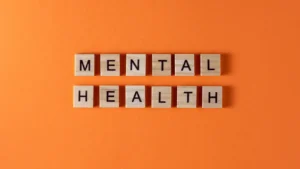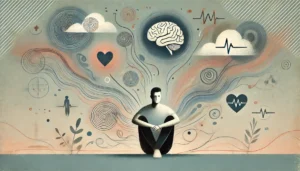Explore the various forms and indicators of internet addiction, along with effective treatment options for addressing its harmful consequences.
Distinguishing between healthy and problematic internet use can be challenging. Online activities have become an integral part of daily life. The internet offers valuable resources for travel, education, and communication. It enables people with common interests to connect and form new relationships.
Unfortunately, some individuals turn to the internet as an escape from reality. Others engage in risky online behaviors. Even those who use the internet safely may experience negative effects when their usage becomes unmanageable.
The rise in internet misuse has prompted mental health professionals to consider adding internet addiction disorder to the DSM. This is because excessive internet use can mirror drug addiction in certain individuals. These people may benefit from treatment plans similar to those used for substance abuse.
Types of Internet Addictions
Internet addiction manifests in various forms. The internet provides access to video streaming, gaming, and social media platforms, each of which can be addictive. Due to the internet’s diverse offerings, addiction types range from cybersexual to gaming-related.
Cybersexual
While jokes about internet pornography are common, some individuals develop a serious porn addiction. The accessibility of online pornography has increased significantly, allowing people to easily access it from the privacy of their homes.
The abundance of sexual content online can profoundly impact the brain. Viewing pornography can affect the brain similarly to drug use, potentially leading to long-term changes.
Some online sexual addictions can be particularly dangerous. Users may encounter sexual predators or minors in chat rooms. Others might use internet platforms to seek out new sexual partners.
Net Compulsions
Net compulsions share similarities with OCD symptoms. While individuals with OCD might repeatedly check if doors are locked or appliances are turned off, those with net compulsions may constantly check social media or refresh their email inboxes.
Some people may compulsively check news, weather, or financial websites. While interest in these topics is normal, excessive checking can interfere with work or school responsibilities. When online shopping is involved, it can lead to significant financial consequences.
Cyber Relationships
Social media plays a significant role in our online world. It helps people stay connected and informed about global events. However, excessive use of social media can be counterproductive. Overuse can lead to isolation from real-life relationships.
Many individuals turn to social media as a coping mechanism for mental health issues. Chatting online can become an escape from anxiety or self-doubt. The pursuit of validation on these platforms can quickly become addictive.
Those addicted to online relationships may exhibit irrational and impulsive behavior in their offline interactions.
Gaming
Video game addiction is a real concern, with online gaming being the primary culprit.
Gamers often describe games as “addictive” in a positive light. However, there’s a distinction between a game that’s engrossing due to its enjoyment factor and one that triggers genuine addiction. Gaming culture often glorifies marathon gaming sessions. Many people manage their gaming habits healthily by completing games, losing interest, or balancing game time with other activities.
Some individuals, however, struggle to control their gaming time. For those with gaming addiction, it may become their primary focus, leading to neglect of school, work, or even basic self-care. In an extreme case, a couple became so engrossed in an online game that their child died from neglect.
Information Seeking
This type of addiction can develop unexpectedly, as curiosity is generally encouraged in children. Lifelong learning is known to benefit health, wealth, and social life.
The issue isn’t the act of seeking information online, but rather how it can amplify anxiety and overthinking.
Even simple decisions can become complex. The constant pursuit of new information can overshadow important tasks.
Signs and Symptoms of Internet Addiction
Internet addiction is partly defined by its duration and increasing frequency of use.
Most healthcare professionals assess internet addiction using criteria similar to those for gambling disorders. An addiction expert identified six key symptoms indicative of behavioral addiction:
- Prominence: when one activity becomes more crucial than others
- Emotional regulation: using an activity to alleviate or avoid negative feelings
- Increased need: requiring more of an activity to achieve the desired effect
- Discomfort: experiencing unpleasant symptoms after stopping an activity
- Friction: encountering periods of internal and external struggle due to the activity
- Return: resuming an activity after a period of abstinence
Internet addiction is a significant issue in China and other Asian nations. Chinese studies have identified additional symptoms beyond the first four listed:
- Lack of restraint: failing to control or reduce internet usage
- Disinterest in other pursuits: neglecting important activities in favor of internet use
- Persistence despite problems: maintaining internet habits despite negative consequences
- Concealment: hiding or misrepresenting time spent online
Internet addiction becomes problematic when a person consistently experiences negative effects from their online activities.
Factors Contributing to Internet Addiction
Internet use triggers reward centers in the brain, leading to increased usage. Some individuals are particularly susceptible to this effect, which explains why most daily internet users for work or school don’t develop addiction symptoms.
Contributing factors may include excessive childhood internet use without parental supervision, recent trauma, high stress levels, or substance use disorders. Additional risk factors include:
- Male gender
- Presence of mental health issues
- Tendency towards poor moods
- Limited offline social interactions
- Family discord
Most of these factors suggest attempts to manage or self-soothe stress or discomfort.
Consequences of Internet Addiction
Research indicates that internet addiction impacts brain function. Prolonged internet use may result in:
- Dopamine surges similar to those caused by substance use
- Atypical amounts of gray and white matter in the brain
- Altered brain activity related to impulse control and motor coordination
Some experts believe that chronic, heavy internet use can alter personality traits, potentially making individuals more aggressive, narcissistic, or impulsive.
Even regular internet users without addiction can experience changes. Many report that online habits have affected their ability to focus, making it harder to retain information. Some find themselves skimming content rather than reading deeply.
Internet addiction can also lead to physical issues. More time online often means more time sitting, which can result in:
- Unwanted weight changes
- Muscle stiffness
- Discomfort in the back or shoulders
- Eyesight problems
- Wrist and hand pain
- Poor posture
Generally, those with internet addiction tend to be less active for extended periods. To avoid these health issues, it’s important to take regular breaks and engage in physical activities.
Withdrawal from Internet Addiction
While “withdrawal” traditionally referred to effects from stopping substance use, internet addictions can also cause withdrawal-like symptoms.
These symptoms mainly affect mood and thinking. Regular internet users may feel restless or worried when offline. Other signs include:
- Nervousness
- Low mood
- Rapid heartbeat
In one extreme case, a person who played the same online game for eight hours daily over two years experienced psychosis after stopping.
Internet Addiction: By the Numbers
Statistics show this problem is growing worldwide. In the US and Europe, between 1.5% and 8.2% of people struggle with this addiction. Studies in China found that 10% to 27% of youth are affected. Globally, about 6% of people have some form of internet addiction.
Internet Addiction and Other Mental Health Issues
Internet addiction often occurs alongside other mental health conditions. This can make diagnosis and treatment more complex. Common co-occurring disorders include:
Internet addiction often goes hand in hand with mental health issues like depression and anxiety. A study in Korea found that people with this problem are twice as likely to struggle with alcohol, five times more likely to have anxiety, and six times more likely to be depressed or have PTSD compared to moderate internet users.
These issues can feed into each other. Those with depression or anxiety might turn to the internet as their main social outlet, increasing the risk of addiction. On the flip side, excessive internet use can lead to anxiety and depression due to the stress it causes.
Studies show that substance use problems often come before internet addiction, especially in young people, but it can happen the other way too. Heavy internet users might start using drugs or alcohol to stay awake and engaged online.
Alcohol problems are particularly common among those with internet addiction. Alcohol can make socializing easier, and both alcohol and internet use can temporarily ease feelings of loneliness and worry.
Getting Help for Internet Addiction
The good news is that recovery is possible with the right support. Like with substance use problems, people with internet addiction can benefit from support groups that offer help and reduce feelings of isolation and shame. Some groups include Online Gamers Anonymous, Computer Gaming Addicts Anonymous, reSTART, and local groups run by treatment centers.
Treatment for internet addiction can be outpatient or inpatient at a facility that specializes in this issue. The same approaches that work for substance abuse also work for behavioral addictions. For example, CBT can help people cut down on internet use and keep up these changes over time. For those dealing with both internet and substance addiction, an integrated care plan can address both issues at once.
If you’ve developed a substance problem while trying to manage internet addiction, reach out to The Recovery Village. Call to speak with a representative about how professional treatment can address both issues effectively.






